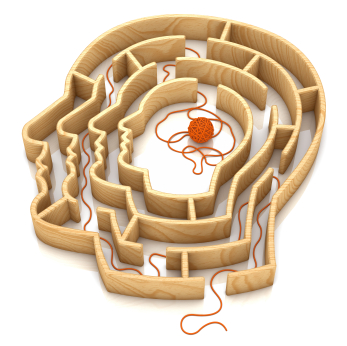Oncology Summit Europe
Drive patient access to oncology drugs with exclusive insights from key stakeholders and thought-leaders from all over Europe
Psycho-oncology: How pharma can help patients
Ursula Sautter examines innovative efforts to offer psychological support to cancer sufferers

“You have cancer.” When a physician utters these words, a patient’s life changes irrevocably.
Given the psychological upheaval a cancer diagnosis causes, it’s not surprising that many cancer patients develop problems like depression, anxiety, or adjustment disorder.
In the experience of Takashi Hosaka, who heads the Department of Psycho-Oncology of Tokyo’s St. Luke’s International Hospital, one out of three people diagnosed with a tumor or other type of malignant growth require psychological care—but few of them get it.
Overworked doctors, she says, often simply don’t have the time, inclination, or knowledge to detect or treat these disorders, thus they “easily overlook the signs.”
Fortunately, more and more pharma companies are beginning to recognize the importance of including the psychological responses of individuals to cancer in treatment regimens.
They are developing hands-on solutions that enable patients and their families, as well as doctors and other caregivers, to actively and independently cope.
Mind and body
Take GlaxoSmithKline (GSK) and its exemplary German “Psyche Helps Body” (Psyche hilft Körper) initiative.
First launched in 2009 and regularly expanded ever since, the campaign provides patients with material that offers information on cancer and therapy.
“When we talked to doctors and patients, we realized there was a great demand for psycho-oncology information, education, and services,” says Arnd Prilipp, a PR manager for GSK Germany who co-developed the project.
Psycho-oncology “is of great significance in the overall oncological therapeutic concept,” he argues, “reducing fears [and] increasing quality of life.” (For more on oncology, see ‘Personalized medicine: Lesson for Oncology’.)
GSK compiled the booklet “Consultation Hour for the Soul” (Sprechstunde für die Seele), a Germany-wide directory of around 340 doctors, psychologists, psychiatrists, and psychotherapists offering psycho-oncological services.
Its goal is to “dissipate the prejudices surrounding psycho-oncology,” says Prilipp, “and make the existing range of services more transparent and therefore more accessible for patients and their relatives.”
The brochure, which can either be downloaded from the GSK website or procured via physicians or self-help groups, is targeted at all those cancer sufferers whose doctors don’t provide psychological counseling themselves.
Continuously updated, the list is organized by post code and specifies which type of counseling is provided—behavioral therapy, depth psychology, expressive therapy, etc—and whether it takes place in a private practice, a hospital, rehabilitation facility, or counseling center.
The booklet also lists the qualifications of the caregiver and any recognized certificates he or she has obtained.
Since GSK found it is often difficult for patients to keep track of the many doctor’s appointments, therapies, and scientific terms, the company also recently issued “Keeping Tabs” (Alles im Blick), a sturdy mint-green folder in which cancer sufferers can keep track of their case history.
Aside from basic information about the disease and a glossary of medical terms, the folder can serve as an archive where data on operations, therapies, or drugs and their side effects can be recorded.
Taking back control
The possibility to keep track of, and give at least some superficial order to, the many minutiae of an otherwise chaotic disease, Prilipp and his colleagues believe, gives patients the feeling that they can take back at least some control over their lives.
And the information archived in the folder is not only useful for the patient but the medics responsible for treatment, too.
The sub-category “My Individual Pain Protocol” invites users to record where, when, and for how long pain has occurred, its nature, what steps were taken to alleviate it, and whether they were successful.
Such insights can prove valuable for ongoing diagnostics and the fine-tuning of therapy.
GSK also publishes the “Waiting Room Paper”, a magazine distributed to doctors’ surgeries that gives a voice to individual patients and their experiences and allows them to share with co-sufferers easily understandable tips on how to deal with the disease.
It also contains interviews with pharmacists who answer cancer questions in easily understandable language.
There are a lot of other things pharma could do to promote psycho-oncological know-how and services, Hosaka suggests, such as arranging mental health seminars and preparing brochures for healthcare professionals.
Training programs targeting oncologists would also be helpful, she says, so they recognize the need for psycho-oncological treatment in patients.
Setting up telephone help desks or counseling services where distraught cancer patient or their family members can find emotional, practical, and psychological support would also be useful, according to Hosaka.
If similar measures sponsored or created by pharma become more frequent, perhaps more of those whose lives are unhinged by cancer will be psychologically better prepared to fight it.
For more on oncology, join the sector’s other key players at Oncology Summit Europe on November 24-25 in Berlin.
For exclusive business insights, download eyeforpharma's Pharma Emerging Markets Report 2011-12 and Pharma Key Account Management Report 2011-12.
For all the latest business analysis and insight for the pharma industry, sign up to eyeforpharma’s newsletters and follow us on Twitter.
Oncology Summit Europe
Drive patient access to oncology drugs with exclusive insights from key stakeholders and thought-leaders from all over Europe
